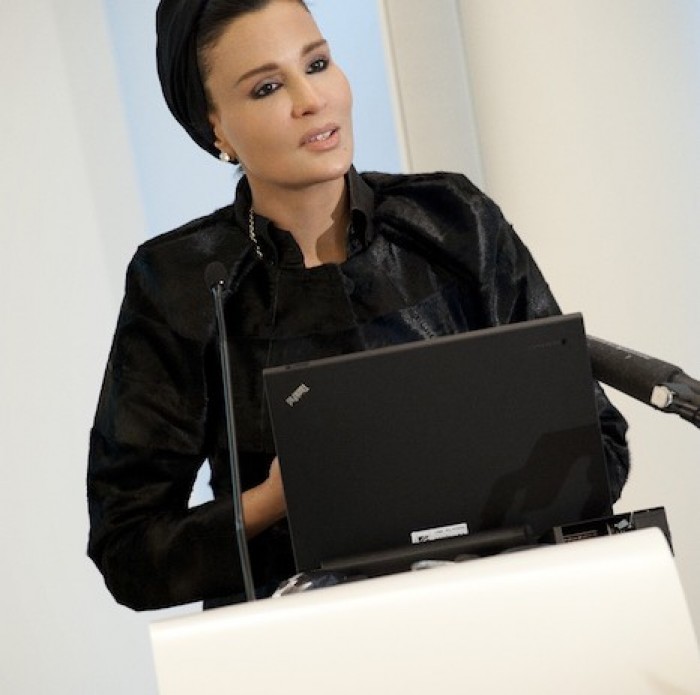Success Stories
The Amir of Kuwait, Sheikh Sabah Al-Ahmad Al-Jaber Al-Sabah
Leading with Wisdom and Vision
Ghana Harb Conord
June 26, 2009
One of the most recognizable faces among world leaders today is a man who has been in the limelight of the international arena for over 45 years. Having served Kuwait as the Prime Minister, the Deputy Prime Minister, and as the Foreign Minister (a tenure of 40 years, making him one of the longest serving foreign ministers in the world), His Highness, the Amir of Kuwait, Sheikh Sabah Al-Ahmad Al-Jaber Al-Sabah has dedicated his life to the service and well-being of his country.
Sheikh Sabah became the Amir of Kuwait on January 29, 2006, succeeding Sheikh Saad who ruled for only nine days due to health reasons, and following the death of the late Amir, Sheikh Jaber, who passed away in January 2006. Sheikh Jaber ruled Kuwait for more than 25 years. During his reign, he commissioned Sheikh Sabah to run Kuwait's day-to-day affairs. Indeed, Sheikh Sabah was in many respects the de facto leader of development in Kuwait for several years before he actually became the Amir. Today, he is admired, loved and deeply respected by both his people and world leaders alike.
The Early Years
His Highness the Amir, Sheikh Sabah Al-Ahmad Al-Jaber Al-Sabah, was born on June 6, 1929. He received his primary education at Al Mubarakya School in Kuwait City and then completed his secondary education with private tutors. During his formative years, the young Al-Sabah learned a great deal about diplomacy and leadership from his father, Sheikh Ahmad Al-Jaber Al-Sabah, the tenth Amir of Kuwait. His numerous trips abroad and his skilled dealings with foreign leaders and heads of state further enriched Sheikh Al-Sabah’s reputation as a skilled diplomat and visionary leader.
A Leader with a Peaceful Nature Despite Personal Tragedy
His Highness the Amir is a widower, losing his wife, Sheikha Futooh, just before the Iraqi invasion of Kuwait in August 1990. HH the Amir has two sons: Sheikh Nasser, the Minister of Al-Diwan Al-Amiri Affairs; and Sheikh Hamed, an accomplished businessman. HH the Amir also had two additional children who have passed away: His daughter, Sheikha Salwa, was a victim of cancer, succumbing to the illness in July 2002. In loving honor to her memory, the Amir named his home, ”Dar Salwa", meaning "The Palace of Salwa." His third son, Sheikh Ahmed, died in a tragic car accident in 1969.
His Highness the Amir is renowned for his pleasant and gentle character, his sense of humor, and his compassion and regard for others. His wide vision and keen ability to see things deeply while also assessing the potential consequences of his decisions, his wisdom, cleverness, transparency, loyalty and dedication to the well-being of Kuwait, and the bond he has with his fellow countrymen make him a much loved and revered leader.
Modest by nature, the Amir is a man who takes great pleasure in the simple things of life. He loves the outdoors, and most of his hobbies involve activities related to nature, including fishing, hunting and planting. HH the Amir is also a skilled photographer and holds a deep passion for reading and literature.
A Rich Political Journey
His Highness the Amir began his political career in 1954 when he became a member of the Higher Council, a position he held until June 1961 when Kuwait gained full independence from Britain. He then moved on to hold several senior positions while serving in various government ministries. Most significantly were his positions with the Ministry of Information and the Ministry of Foreign Affairs (MFA). At the MFA, he served as the Foreign Minister for 40 years (from 1963 to 2003), making him one of the longest-serving foreign ministers in the world. During these years, he established and built strong ties with many of the world leaders while also easing traditional tensions with neighboring Iran. He also successfully lobbied for the international response to Iraq's invasion of Kuwait in August 1990, establishing the framework for the coalition response to Iraq’s aggression. As a result of his skills as a professional diplomat and advocate, Sheikh Al-Sabah was chosen to serve as the Worldwide Dean for International Diplomacy, a prestigious honor symbolic of his many strategic diplomatic and political achievements.
In addition to serving as Foreign Minister, Sheikh Sabah also served as Kuwait’s Deputy Prime Minister for 25 years from February 1978 to July 2003. He was then appointed as Kuwait’s Prime Minister, a post he held for two-and-a-half years, until he became the Amir of Kuwait in 2006.
Accomplishments as Amir
Under the guidance of HH the Amir Sheikh Sabah, Kuwait has witnessed unprecedented prosperity on a variety of levels – politically, diplomatically, economically, socially and culturally. HH the Amir established a new chapter in the history of Kuwait on both a diplomatic and political level by ensuring the institution of constitutional safeguards, reinforcement of the role of civil institutions, numerous political, social and cultural reforms and the attraction of many international organizations to Kuwait to increase investment and diversify the economy.
The Amir’s vision for Kuwait is based on a number of factors and strategic goals that are focused on moving the country toward even greater prosperity, increased safety and stability in the region, and stronger economic and political ties with allies and neighbors. Although Kuwait controls about 10% of the world's proven oil reserves, the Amir’s long-term vision is to avoid a single source commodity-based economy and complete reliance on future oil revenues. Rather, he believes in building a broader safety net to ensure the security and prosperity of future generations of Kuwaitis through diversification of assets and broader investment strategies.
Toward this end, the Amir has urged Kuwaitis to create new opportunities in banking, finance and trade in an effort to support and strengthen the national economy by increasing ties with other countries, attracting additional foreign investment, and evolving Kuwait into a premier international financial center. Setting his sights on this long-term vision of Kuwait, the Amir personally presided over the planning and implementation initiatives designed to prepare Kuwait for this future. His direct involvement included the design and oversight in publishing of many of the new laws and government policies to improve transparency in government. He has also provided broad oversight of large construction and infrastructure modernization projects that have left an historical mark on his tenure as leader of Kuwait.
On both a regional and international level, the Amir has aimed to achieve progress and create stability by building a political foreign policy that bridges Kuwait and other Arab and Islamic countries while strengthening ties among the Gulf people. The economy is the nerve and the lifeline of any government or nation. Based on that principle, the Amir is working diligently to build an economy and a society based on information and technology, and to develop the financial system by exploring new horizons in investment, trade and privatization.
An initiative the Amir was adamant about was liberating the Kuwaiti Dinar from the US Dollar, which often was declining in value against other currencies. This wise decision proved significant in keeping the Kuwait economy robust while many other countries were suffering.
The Amir also played a groundbreaking role in increasing the role of Kuwaiti women in the political process. His government has appointed Kuwait’s first female minister, and has actively worked to revise school curriculums to promote religious tolerance.
Some of the significant legislation passed during the Amir’s reign included the repeal of a law prohibiting public gatherings; an increase in the number of licenses available for privately held newspapers, television stations and other media outlets; and the introduction of a new media law that is regarded as one of the strongest free press laws in the Arab world.
Kuwait Today
Kuwait enjoys unprecedented stability today having witnessed a sort of renaissance that positively prevailed over the daily life of the Kuwaiti people. The effect has been far reaching, extending to other Arab and Muslim countries. Kuwait has increased its humanitarian aid and support, assisting in broader development and modernization of the region. The increased prosperity Kuwait has experienced has helped the government invest broadly and to implement projects that will help sustain growth and increase humanitarian development while building a more informed and capable society.



































